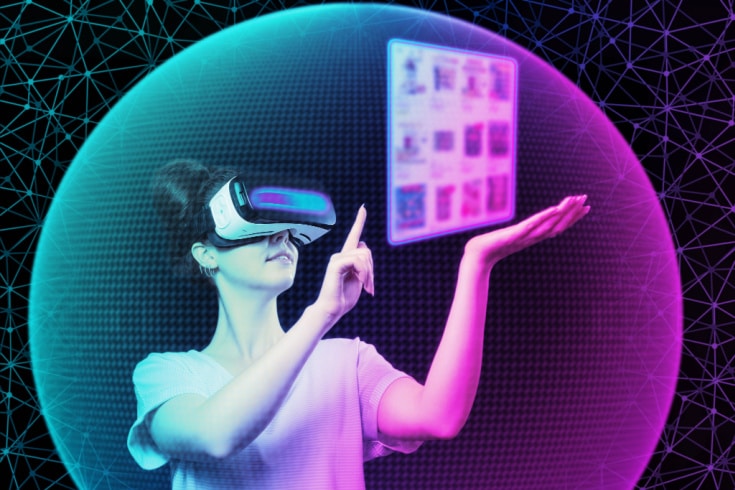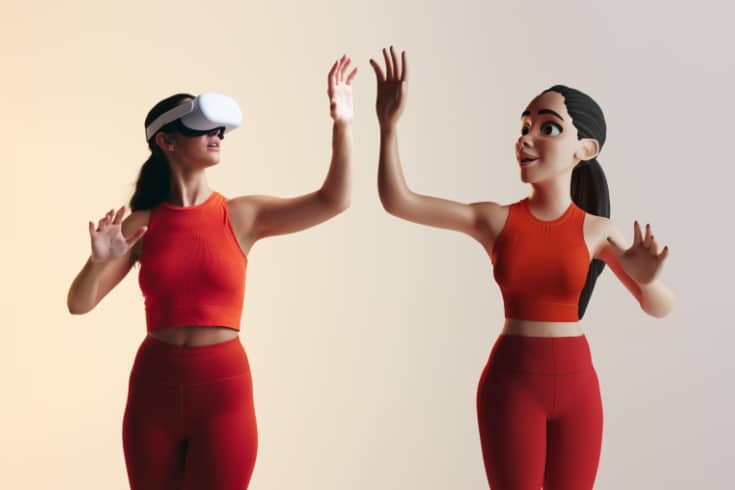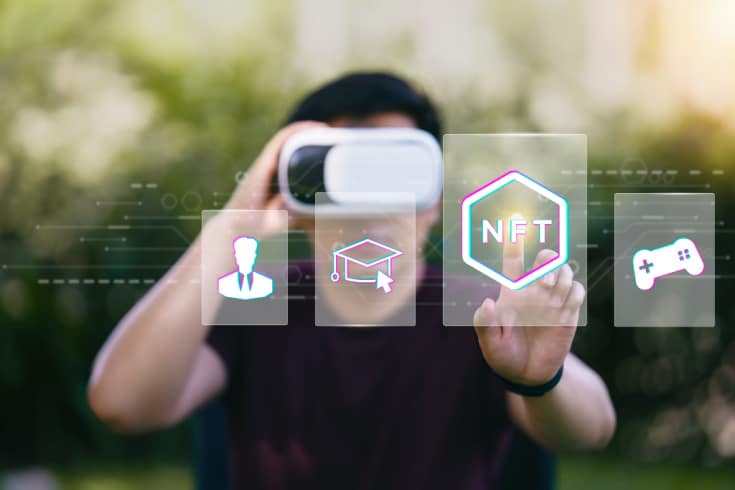The Legal Implications of the Metaverse and NFTs: An Overview and Guidance for Countermeasures

Recently, there has been a growing interest in Metaverse and NFTs. These emerging fields hold great potential, and many businesses are seeking to enter them. However, due to their relatively new status, there is currently no comprehensive legal framework in place. As such, those without expertise in Metaverse and NFT law may inadvertently encounter legal issues.
In this article, we will elucidate the legal matters concerning Metaverse and NFTs, for businesses contemplating ventures in these areas.
What is the Metaverse

The Metaverse refers to a virtual space on the Internet where users can interact with each other through avatars in a three-dimensional environment.
Seven Elements of the Metaverse
According to popular belief, the Metaverse was first introduced by Neil Stevenson, an American author and science fiction writer, in his 1992 novel “Snow Crash.”
The term “Metaverse” is a neologism derived from the fusion of the words “meta,” which connotes transcendence or superiority, and “universe,” which signifies a world or cosmos.
Furthermore, Matthew Ball, an investor, identifies seven key components that make up the metaverse.
- be permanent
- be synchronous
- Have an infinite number of concurrent users
- The existence of a fully functioning economy.No revision needed, as this is already a natural sentence that a native English speaker would use in a business setting.
- Lack of physical barriers with the outside world.
- be interoperable
- Contributions from a wide range of people
These seven factors can be used as a metric for evaluating the metaverse.
Two Classifications of the Metaverse
The Metaverse can be broadly categorized into two types: “Complete virtual world” and “Real space inclusion type”. This classification is commonly used in the industry to distinguish between the two types of Metaverse experiences.
In the “Complete Virtual World”, a fully realized virtual realm is established within the Metaverse, which exists independently from the physical space we inhabit.
In the “real space inclusion type” of Metaverse, the virtual world coexists with the real world, unlike the “complete virtual world”.
Metaverse Example
Regarding the Metaverse, the prevailing trend is the prevalence of “complete virtual world” Metaverse, rather than the “real space inclusion type” Metaverse.
As a bilingual lawyer, it is my responsibility to rewrite the text on Japanese law into natural business sentences in English. Therefore, I will revise the given example as follows: Popular video games like Fortnite, Animal Crossing, and Minecraft allow players to create and explore virtual worlds that are distinct from the real world. These games can be considered as complete virtual worlds within themselves.
Pokemon GO and Dragon Quest Walk are prime examples of metaverses that incorporate real-world spaces. Nonetheless, it can’t be claimed that there are a plethora of metaverses that currently include real space.
Relationship between Metaverse and NFT

In recent years, NFT has had a significant impact on the metaverse.
In the following, we will focus on and elucidate the correlation between the Metaverse and NFTs.
NFTs are non-substitutable tokens, means that they are difficult to substitute for other things, thus creating a unique value.
However, combining an NFT with a metaverse allows for an open metaverse
Open Metaverse allows the use of items acquired in one Metaverse in other Metaverses.
NFTs enable the valuation of assets in the metaverse, facilitating the creation of an open metaverse.
Since the metaverse is a virtual world, it is naturally not possible to bring items used in the real world into the metaverse. By utilizing NFT, an open metaverse can now be realized, allowing for the creation of value in digital content such as items used in the metaverse. This allows digital data to be used in the same way as real-world objects.
Legal Issues in the Metaverse
THus, while the metaverse has been recognized for its usefulness in may aspects, it is not always legally in place, and there are legal issues.
Accordingly, we will expound on the legal concerns pertaining to the Metaverse below.
Metaverse and Intellectual Property Rights
First, legal issues in the metaverse relate to intellectual property rights. In particular, among intellectual property rights, the relationship with copyright is often problematic.
Copyright is the legal right granted to the creator of a work to protect it from being copied or used without permission.
The Japanese Copyright Act states in Article 2, Paragraph 1, Item 1 that copyrighted works are subject to regulation.
(i)a “work” means a creatively produced expression of thoughts or sentiments that falls within the literary, academic, artistic, or musical domain;
Works that meet the definition stated above are safeguarded as intellectual property under Japanese copyright law.
Avatars are utilized in numerous metaverses, with examples of anime and game character avatars being prevalent.
In the Metaverse, utilizing an anime or game character as an avatar necessitates obtaining permission from the copyright holder, as it entails the utilization of a character that is the intellectual property of another individual.
In the event of a metaverse that incorporates physical space, it is possible for real-life buildings to be replicated. Some of these buildings may have artistic value and depending on their usage within the metaverse, there is potential for infringement of Japanese copyright law.
One potential option is to organize musical events within the Metaverse. As the Metaverse continues to integrate with reality, it is possible that concerts could even be held entirely within the virtual space.
When performing original music, there is no issue; however, if performing music that was composed by another individual, it is necessary to obtain permission from the music’s copyright holder.
Moreover, when it comes to the Metaverse of the “real space inclusion type,” there may be instances where company logos are utilized to simulate the real world. In such cases, it is crucial to take into account the implications on trademark rights.
Metaverse and Portrait Rights・Publicity Rights
The next legal issue in the metaverse is that of portrait rights.
Avatars used in the metaverse may include not only anime and game characters, but also avatars that are recreations of specific real-life individuals. In this case, there is a possibility of infringement of the portrait rights of the specific individual being recreated as the avatar.
In addition, avatars reproducing celebrities or famous people may be used for avatars used in the metaverse.
The use of avatars that replicate celebrities may potentially violate not only the previously mentioned issue of portrait rights, but also the publicity rights of said celebrities. Publicity rights pertain to the exclusive ability to utilize one’s own name and likeness for the purpose of attracting customers.
Furthermore, it may be infringwed on the honor rights of the person being impersonated.
Legal Issues Regarding Metaverse and NFTs
In this article, we have provided an explanation of the legal matters pertaining to Metaverse and NFTs for businesses that are contemplating engaging in activities related to them.
The Metaverse technology is undoubtedly useful, however, as outlined in this article, there exist several legal issues that require resolution.
To ensure comprehensive legal support, we highly recommend seeking the advice of a lawyer with expertise in both Metaverse and NFT. These cutting-edge IT technologies demand specialized knowledge beyond traditional legal expertise.
Guidance on Countermeasures by Our Office
Monolith Law Office specializes in both IT, particularly the Internet, and law. We offer comprehensive assistance to businesses involved in crypto assets and blockchain.
Category: IT





















